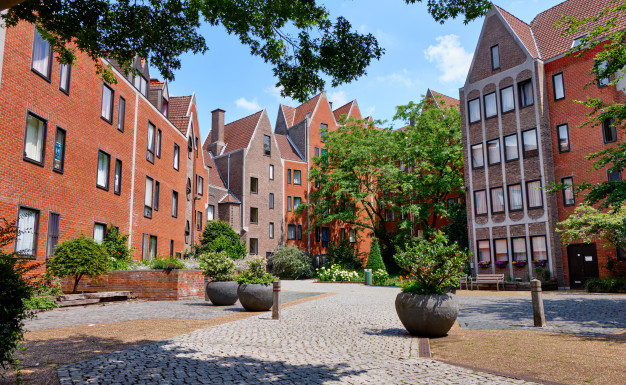After days of searching, you’ve finally found your dream home. But it sits across the street from a school—which could be good or bad. With school in session almost all year, buyers should weigh the advantages and disadvantages of living near a school before making a final decision.
Every buyer is unique. Most with young, school-age kids usually shop for specific school districts and want to be close to their elementary school. Buyers with middle- and high-school-age children are more district-driven, with the location being secondary.
Here are some pros and cons to think about when considering buying near a school.
Pro: Your children can walk to school
Most parents dread the drive-through crunch when dropping off and picking up kids from school every day. Living near a school means you can skip the drive and just walk—getting a little outdoor exercise as a bonus.
Con: Streets are clogged with traffic
Living near a school can mean dealing with heavy traffic, including idling cars and buses shuttling kids to and from school. And it may not be just twice a day.
Neighbours can expect traffic issues during special events such as parent-teacher conferences, plays, and sporting events.
If you live near a high school, expect there to be more frequent car crashes since students new to driving are more likely to have accidents.
Pro: Access to playground after school
Public parks can sometimes be located a distance away. Living near a public school gives kids, even if they don’t attend the school, access to the playground when school is out for the day. This could include swings, monkey bars, and handball and basketball courts.
School parks usually have a track and or playground for them to use.
Con: Neighborhood parking rules may not be enforced
One of the biggest gripes neighbours have about living near a school is the lack of parking enforcement and inconsiderate parents parking in, or blocking, neighbourhood driveways.
Some streets near schools have no-parking rules during school hours, parking issues from staff if a school doesn’t have a private lot.
Pro: Schools are typically located in safe neighbourhoods
Safety is a priority for schools, and many schools have daily police patrols and tight security measures to keep their campuses secure. This can be an added benefit for home buyers looking for a safe community.
Schools are typically in very safe neighbourhoods with parks and local law enforcement nearby.
Schools also promote a sense of community. She says schools can liven up a community, providing social activities for adults and kids, such as crafts fairs and sporting events.
Con: Heightened noise level
Often when buyers think of schools, they think of the noise. Living near a school can bring all kinds of noises, like the ping of metal bats, kids shooting hoops on the basketball court, cheering at games, band practice, and more.
The PA system usually broadcasts outside the school, which could be a noise issue for some.
Pro: A good school district means higher resale value
Buyers with kids will make a beeline toward neighbourhoods with good school districts. That, in turn, has additional benefits for sellers.
Homes in highly rated school zones are in higher demand for buyers and fetch higher resale prices.
Good school districts drive up price tags on homes, buyers can usually find cheaper or bigger homes just outside of the school zone.
Con: More kids are walking in the neighbourhood, trespassing
Living near a school means an abundance of kids all over the neighbourhood. This can rob a homeowner of peace and privacy.
There will be a higher volume of kids walking around in the afternoon, which could lead to a noisy environment or loitering or even trespassing on your property.
If you want to buy near a school but noise, parking, and traffic [are] a concern to you consider buying a few blocks away.
You will get all the same conveniences but less of the issues.








